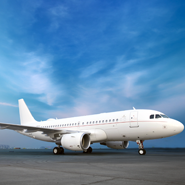A range of factors contribute to the expected rise in prices for airfare, hotel rates and ground transportation in 2015, according to a new report by American Express Global Business Travel.
Supply and demand dynamics are being affected by airline consolidations, stricter corporate travel policies, constrained hotel supply and other factors, according to the report. For luxury brands, the overall price increases will likely have little impact on consumer demand.
"With new hotel supply limited in many major markets, air industry consolidation and a higher focus on yield management around the world, the slight increases in business travel demand expected should put more pricing power in the hands of suppliers next year," said Patricia Partelow, vice president and head of global business consulting at American Express Global Business Travel.
“Consequently, it will become even more important for travel managers to have access to relevant and reliable data on their company’s travel spend," she said.
"Armed with this insight, travel managers and their travel management companies can leverage it in supplier negotiations, as well as ensure an organization’s travel investments are appropriately allocated to support its overall business objectives."
The forecast is based on primary data sources, including proprietary data from the Global Business Travel Monitor, the American Express Global Business Travel contracted rates database, aggregate transaction data, and secondary data sources including Smith Travel Research (STR) Global Hotel Reviews, Center for Asia Pacific Aviation (CAPA), Airline Weekly and economic data projects from Economywatch.com.
Going up
The report predicts that prices will increase across the globe, but different catalysts exist in each market.
In the U.S., the economic recovery is generating more consumer confidence, which leads to the ability to command more prices.
Capacity discipline by U.S. carriers and consolidation among major players leads to another engine of increases.
Hotel rates will climb due to overall economic growth, more demand and limited inventory. The report notes that on a city-by-city level, however, prices will shift differently depending on local market contexts.

Park City, Utah
Mid-level hotels may begin to compete with high-end hotels as their value proposition rises. Regardless, high-end properties will continue to emphasize superior service as an unswerving differentiator.
Latin America is expected to see minor price increases for airfare due to competition from the U.S. and Europe, but price increases for upper-level hotels will rise due to the business conducted throughout the region and the lack of options.
Brazil, in particular, will remain in the international spotlight as it awaits the 2016 Olympics.

Hublot at the World Cup in Brazil
A report by Boston Consulting Group argues that Brazil’s interior market, the cities outside of major metropolitan areas, are underserved by companies across sectors and consumers there have nearly 20 percent more disposable income on average than their primary city counterparts.
Sixty of the 98 interior cities with more than 5,000 affluent families were found to have no luxury car dealership. Lack of awareness and accessibility of automakers among many other categories leads to undercultivated markets that will continue to grow well into the next decade (see story).
Mixed signals
Europe is still confronted with widespread stagnation, but the United Kingdom has been recovering to some extent, and this growth is expected to continue.
In the Middle East, political instability and economic volatility portends uneven pricing patterns across countries.
In the Asia Pacific region, cooling growth especially from China will result in moderate price increases. Thailand in particular will struggle with attracting global tourists due to the political situation.
After a period of mounting political agitation, Thailand has been trying to project an image of stability to keep the wheels of tourism turning.
The government lifted a state of emergency March 19 to aid the economic outlook, but the country remained stuck in a precarious political limbo. For luxury hotel brands, maintaining a steady and straightforward dialogue with prospective guests will continue to help to ameliorate concerns (see story).
As brands navigate the changing marketplaces of the world, maintaing consistency will be important.
“Although we have been producing the Forecast for over a decade, we’re proud to present our first edition as a stand-alone company equipped to power the development of the next generation of products and state-of-the art capabilities," Ms. Partelow said.
"We look forward to working with our clients to use this type of data and insight to deliver the greatest return on their travel investments," she said.
Final Take
Joe McCarthy, staff writer on Luxury Daily, New York
{"ct":"B4MfRsdv73GlRh6YqLnsANjbTDWSPx+N7lZk7b0Av8zPs2qxp4+kUUvZsw3HOBW0jnvn6Ny4pdG+Fnl\/b4fCecvU0MQykGWHEqcB3En1DMydDyd92n\/scnP4YslPKxqQJoXb43djVv1UcQaCSUYYTTrBSXK4GifnKYnu1CFFci21DJNJoezfRhnQ4fjstBSEEcRhPqhj5Zu0JYsmLyv+MSBpArbBQocT8S62+1lmkgx6Pn3AWY793Ek8dOxn16NaRIp1pgxoNHbfKGmSsUJ2SnabdvxlOkxLMFSlZnFta5Vn5ZqL6RiUq+ghtbo8\/aEvpaKt4KOolgMKmEZx8dF6YNADLcq2nmr9Wt58gSb7aru10HFsvhe9oXAIGPO\/Q\/6Tye+cobcToHZmfV9NO0ijmmMZZF7g+bmnfyGceQThCIZYAlmb67QpldiZcCIEOaqMj99j5LZ4CaOSkX7PslTDDVe+71RuvUOdwG++38kKXvF5FJqBbqOyfVE2gy6TzJEzh\/YlcU5JmB6+o7YNgJHAPWUARuxPMmSxktNnFJW0MGeToc\/SWw12VWuEsW7CHrfDqbZ7j6s098n+fgL5rjnA9GqjFvCBb1f6rth4l6zltF1F9uSjd6S0HWaboJen8ycv2xYkS2qFHWyAiuBLiM9Q58jhJucN1QwtAyW\/9v2adpYCncbw3NEtwutQbX+tDFXn+5mRtnzrf6DdrHnCNPgtIo00tR5O7KX9i1QB3uGzySVxHlz4lF1hs1TLG110jhtrdwbwO0sX+SPBdPia09\/4rcql3bKB3Ttg\/XWlmKNgs7Zwri+4dq93sc9duXNFm0Nn\/5W5BDKwrlmWRR4ER7IqsFEpiB\/Vm8slSDBIBxT4dViC0+f8oG\/ZevP8hXuh1yhFNj6ri2ky8Ngp5mbfmnbzZ8I8sf2hDh\/xEc\/MKAfjr1fQIftHUhD\/VGatXBxrUG\/A+GSjhy1b9hFGnsUwpxIbqebH8pHHu+DGptadWtSqLzdEp94YPBSYMW2A6kotlmSsOdrjBb3A3edd2Lt9BVy2UFjpyVw5QUfuay83+d9eqTwL+EiqnitiQ45OgoGa9pZJ3kozcmpKx4+BjwIMWu2av19Gyl3Y7qyv\/N11ALaG8QnaLckYUThI52kLY6PFsRoRXvYTf7Jdx8WT+DeVftoRw9YJnW+zUWqzUXqhVnrH63nXgrZQ3BfM9J2\/xjvGeSLVRtfIQ9zqN4lXkBmOJQFr8UHNzNiUzWFsRRu0VvlX7t773PZSz83YD+p3xZ4K+vm2A+isZCtH574pWzRd6+6owPGoPyLSZRUBZRSI1Dxiec6bdL3l\/wOSedTmIVcMrDtVS9tdw1SwQ228A6q8+UmGm2L\/FI2SNHA5lKiWPUmcpU1bfJZc9faf+vNCRtIrUu+7THCXn\/XqQUwwPbCm7Zf4L\/dn36kVZs+\/MJCe97gcJ9DEMWq5FeO9dYd0jDfPBS1IiRxOgj6u14WB2TDdTJNdNR7AcI383hmKs3VANHJWMvpXiQkGSL73FMsivkQ6+TJNxbvdcBsXnZ5zHps62Pdg+UZI4H22WpJDlHwncRNjLQ+nbV0jQlQR9pIWimyF0Jrb7zjcgQBjUDyutgkspeD\/Y21hYorp4qdeo9KkGQav\/AOmNuVUuQlupWiIRKHCygJgd4yQtmC5WJoFfP8rtXuxpeqlAdLV\/RUDXLzRjFF56ITofjgLPjb5CXrtZvXhYLIgxEuKVlXIjJJNcKhYai6RjJOxREpSmWQJjRz3nk128hyfYS7vlhRONpt0f\/3Fx9cUhbOXANY0ZN6rk1WuYJgEVoa4gh6xWAslZA9QxQU4eLutdGq24GURMXWk8JFBVbJbTnVtKNIXyjWIrllISAT15nd6Rr1ssU1o9WJ0Mhzu\/mGx\/Ep\/H\/cLEUKu7b\/qGWCGE1\/SdmVuplW2Xui6cftbvpPuuEyfjHhd2dvcAMYOnqsIiUAwDOcPXZFmgqwSPlFwli5OlR\/7vjVVUA35lYc\/Hpyrhv9wHzD7Y\/f6gj9wjV7KpYF9l+E5+A0HpPhb3Y4QVePMEGFYWZ8i8nuc1LHscYuQIQxYVmB+dsGZYm23pQy0fnc6TPa1kq1W9xZ56X5i+ivNStn+TNS00SHd6F4Wp\/PT0TMrER6yMpB+l8kmI8q4lX++\/JMZQ5ZBiywev0qZnwfMQH3JhBRbcGecbs94lgg864VElCJA+Uxlr7BeMr45UWnxuOvsEgkBCs\/YHhMI0McQzl+9GITlOaMO9q6S2ENV6h+ifIitmpIuBmhsIgbbboZfOUdiYCA70l93FahbAnExPe24AEqhABjJljVsqPTV0gyPHDIHbekeedAQvCQjz3VrudVVWpn0X9+bLoNrR\/JPK6JgkQDE+C65yUPiPNxAFQHVcL5xu00IX2UIRiR+jftWdEnm1WqGbJOVbK5Yo0S9zHri7IWPSdT6Oyew2g+mdzlwN\/Js4vk4j4Q01282EwKyNYGz8vahN02lP3BLHe4RTFhCyuQQWNC4aThJ5g3GJ7q+fhvswIyRI8SCbybOU2If1riOTLz\/bHiNPDjLoieJpCVHeVbuMSbwR0UEca0Cd+djJt+QXRRyR\/Ykfy0gTnUd45PJstsKb2bdWR6sA70SbpOSs1XXENAGS7NuDuihbzEz7w6rC9qXMHfEwoBUuWPwKaFFjUupslyt96gSMkqm9ZbejTXLrEX\/zP4FOK2YfdFrSVAzPRwgg+q3\/l4XJ1E\/TWgSFkLg1CmZBY4if4CWLAzEMxLbWSj7DX1JWTSc96gosoD4v6uoimfRzRE55QwENpuCkMATNGUIppUFlMiW4YYP2gmbpSFBXR60Oj1WnJzUO5v1vo+ddk0SUIZpWvWKiV5CzDNmSvDf7KmCtWjzclh0lldDqL5Z5UFr2i4mDR1BA5EDCtE13JEuYP1WWLCz\/uBzFzDocEEtCnFxyvmUlWliI8L\/+murZM7OsyomyCB6ixVks4MPiopNiHTMMURfdTTToVTkLd389bJE6MXxcYealseJ\/zsKeXHDN3Wu2E\/xt2tS7Cpq7xTbJNOfE9BEqash0GBmKKSsaj8B9U6JaVYe6HW\/2zsqegNu+z3xVJPuBKRVtdhm1+uzD8\/aRmhwn06e2ZdkktKYlFw+1XRMk92bdlvCjQOTtj09Dz\/7RMwJk758X2xEm95rUZ+xRh9t61A4HuY6g05z\/hYiA7dpZw\/anTeH8jBXEySfDLFABra73EOuDWLMTx0sbsToRGYRftLAjQY5n8l2zcbDUlxHB66Gw6Eximu4e0DR4qZ\/0qcJlGXMHLhgUbbhwPKRLYDngWe41DJAnmCBLK+AZVuZsCgns5oFQ7el\/AOAcA0AEhiCR3MuSeUwZH5c5V2rZONxmvJWuaFk86J4wpWdVaZKBsfjzvM4OuTde\/\/Rao8ThMOz9XpabN7jT1lz1dq0LR43Gp+yINPW1vvX4svWhdXnEK6H2vOhrWBhzs2LisQyKA8+kspgzahILJ50OKENToKY8pzpbP8kv7kheAORghSFf7+erDHJnDKD2kUOERPRZhMlEuhNCnmnN9VX7fGKvoyzMf3mTdoRYAx0XY7ozsivuRW2FQeLoQJFSAwmOBK8n1sEx6a4rCxwCiLuBRoidV\/PORQ2Z4XgkPoUrnTUxMKXbVQk8Bvtue7BcmacE8TmIDENWrVgdksPbIBVJWjLxS7dNq7qBIVSY3dfdQTRCJLc9KE9rqLvkZiOJvQCTqjqWPoxelXxIdcV4JmfRZKwUkvHAP1SGYqY2ueE4NFe+yJOnVuy9FGu0ZFI8eQDqfFCxr0SYaY54P8P6\/6JfeFMd6SmG84h3Tino\/KorkvkorS0qok7OGzd1hqvFZq7msHprRTkXz\/B1KKKUAzxECX0G5Lt8\/nkqP\/H+fakqMwdH8uwMkCzKPDsQpKvzUFhdryc32Ogct+mVzqsbUQS7JD0vGbOsH0kG1UXLPvzss1VneolFjv48Iv4HbaaF0WI6miyZHPb+j2Kzn71nj103YDeBQzk9wiV1CVtsie3AW2tqBU09qG\/Av+PdzSAhOiQWumUcO5DEVsf6sjWksnDR58tpwdsancm6ShDjrDuGTIhfztaVQIs8h5NuBd8r4Dp5uuD\/8XuNn7slq7iqCGgerAPctL0WzCn5SdIWCRTf8R3b88ZYWH3xQSrrfsZ6xtxHVnXODr3zQN66i3LtAfBKP3rHPhx7aPmd2veNNRlITTkd7eh5ZL0z1MO9BaIqDbECY7evufLGon2jMU3u6TRYhRDWR31X40JXigbMqCHnbQPn4BY6aaoQqRi8QDqhfjSdJ+Lcg7JpPRMvKpQdb8bSJUSf1kjQ\/gp\/3tAn2gpjP2cH+0tZh2HgaYjVsKyzN91nMG8xfU4e4V04eIxwHotXEJMM11ahb+afniTBdQgerhzHNARQ7QLJdmqIzQf3qa0IBimVWfghcKx8SunAbjYwyhkGHgtQHegM7kv1l7qijGpAh5fqY3l6tAkbqr2kbXJG0NkAKWKN6Ge25r3lyO43UUISTW3HlTpTSd8sy2i5Thm4XJrlwRkKtYgcGUngbYMc5E5YotXqBXMqcLNRV+kKq6yayTvPDi1MjuAdOzus9ELXqcuxHbaC\/q++ZUkBHDxB5mwLkKaKOQLY0qFh4yArYM7Y3ie7TlsuXPF7dkmQNYD\/5805vDBAIAcaVS2VpPtmVOZwB5Z8Y9BfcgNe+5Z+X+j+MG0QsBNa4ZeJ2p0WfeiIgG9RaTjnqICF5STVyuVCoIPr+cFwp0QsPmfSCKXUO3vqa4liynhMM441PSoZ+fBbaI6ATuGHRXVLVPP76Z2ScS5PMNT\/PKoahD6SBSG8zOB8xkJnd2vDyVqqBg8HBMKS2Kuxmd0Dx9qOKAQ3umCsgeonPa1EbwESYCgSHsvDWeUABw1xwJPJLpKukwel0LWIqFs7W4SV0EeNqnfUOT2\/s74XdR9wbxAdBL\/Ajsgk6c0NjOXBvj7dffjJVduzoFhcdurPjF2cKNQsPLa0YLRGC1xLsDoOqtxqm6DCeGUqY1xgPI63WlcEvW3uzpGh3tQ5x9++BQL6BgXRS4pQXanGoN9ASJ8V\/MuJM8i2fx4zxQzQle2wHwDbiHnfa2gtGp1OznA3rkfiur9aCL9t+pt+kw2d+nSgVSMjdHK\/Q4H90cBH9YgoXBOMPNqtHZBqdjGOVS2ldrJAVjcUNOR4mNzAELNQXlkwu8HkrrPL7lgZ4MLXYfpD5mTuNC5mWV7WweEsx448xdVdJLCvtDvzzRzhVvisZDp3cSBsc56tnVqJuErxwUmFc02ZVVmFVBCu1N1aI5YiGr8x8waC1LMAz3qQKu7gKMzs+oh\/pUAmJmUB94Ufblo0OsrBVhLm0Yn8jcJLj7axXSRDVS3VPVkVjJdFmNrfzmFcQ6a4MTpQJbWjcUF8+2CskwWbaVMc+z\/mDeBidxnUlplJd\/qjZCxxk31qJ3cXvT10+oRH68pohsAcvRbvoZfGlm9J8niNjj4xo6w016GPU8v4A8YdNrcQSS78B4fx+Fo1KBfOGrKYcDIEWvgjkRkCUpe6QE3XYY+BiHVXxJx0kGYCTG4auXPoT+ZqoQEhPbi9clMnKdpTWRXNitgcF\/ZaC0aRXN9ANHrWbBYJ1xGhsVYCcoYrp+bscMMj6YxW5UUakqBFVLGGFoDmLyNdYtC2LOF8FEi37fW\/mq8I\/lonfgFtpB2VrPFSgSyn8o0uQCpyeD0hxWU\/EwYDoDLJuJLZoDsz40bALtsjoEXuWfBqchrLOn6Hn7qpBsxnp9USo5oWOD9JlTEbEz1TX7l3btKWJ\/HmML2CNftW25Kh18vs9aMD7aGUmuZle16z0bussJTsd7WhNDZvMOh2\/wc8ZvMAJ1JrFzdEd6GM+Zz8LvfJrCELCO0qy3dgLFM+IQa3C+WvVJFALDuhXansOh0H8Xr7wB2\/D6fqEUVSJ0O+OApRJz83dgluOgXAQQUvZ58NjHOVcMWONr4llHA5r9TFGBk6EN+8w0FqPmcZFlMcKnJYqC1PzH2U5KOSikRQ1Cf1fsU1kYiK\/oV8S7G\/PYdJv7wrd9i9keiy8UJvWmGtLOMLHMsKcG8j8hz6Up5SXudeUlknvFKAgAkrcGtR8p8NxdV61nsO7flYexEJbpyUukQjBQxPmJclpxrN5Y5r4H4h8QeSHZR8sziIhP7QWI+isv8KwKZFynkg4ZYXSjewSl6a2TWQNPzaO1U10eeNqLO75uWcnPPsEKHnv15xJf1AmdNPo0XbLyAjcejyq01Sskre4u0cLxrvMUfuFLoxkC7jKtYKHXujoJNAhcHITnVOTAKoWodv+ubtZFZmefhXXVkclxE66f47kKGDq27E8Spr4A7JJpBR7J\/4FEZYgU\/DlnQFMQckRx+u3WZNoHnsBODJ\/BO8KCyEgd8sDJlpvCI1TtLK1C9kPBEw9gyZ6jDZ\/4wlwtGpaeyiVuu8xvBhnrXbsPjG9k5o0WY7Jplbf2bPgqBUNfdScV27uIaCOC5WBlcekyN+EpiK5F\/12z3z1tsqfUY\/6gSC\/eEscNU\/kELMAuT2KYJkLFAHrmwKTBC7yLdOANQpLw+NVIRraeypxDsgJhK3XDVd9lXRJ1JQYmMW7j2mAY4qJ067\/6qYwp6Ghv0StI7sHShIQjc+b8MyUVsrdRwsqZ6LROMzHAcltCQeqW0xMFpRCu2MMNEitNvpyJ\/5LTtoxH+7Cga5pxlWA3\/In\/ylWQpR1oSFDXvLEWk6kx1AX9YFQEz6a15RCLaFWfHockLXXV0XDiJL1nToV0+FPMrXw5o\/B3Oj2hv+0PtWW16ZVYjQWg9Z\/seZJJlH29wEknu6vY6mfzSKnMnX4L8Dm957VSPNw6vzMIoxqQECTlnLaUjq\/dZeMiRUu+rIBF6itI2la642IFcXPYxPwfFZZPGbVUO8TslFtkbSjsHzETClVGcxNnIECU1REZtLaK6258CSQ61mmHwImdpVsJfnLwseOl1T1Q6\/S6c3ieouDOAO4IO+1xTbAqRE5OUkf0fL1Fob3X5cg+3jTu4mUAqNeT6zIXvd0ZAijReMutfWmfI5WQQ5XE9ZJQ4iW3LbALtHZbDTt\/bN6Zoon\/jrTUpVljB7XIKKewc2LWRV8XbaCXfXRemXSM1ylYwB5XdDJr5tUsZdnpLoAn049lMUdqlReJh5Kn2IeMGux8fTJNU9ZDboNmg1fXLc2qKmIC7DO3x6cFngzNvJhITyGL4tf+\/b4qUrhOtsYCwm61aR+ni2kXrmYq\/NPW0L\/AArWIX9Rzr8A2fJgaW0HtTP2i5BDY0vZNVzcJxZu7CKogpiEEpmGwEjqNnaFiEvhWOh9P8QytGQ0MqNptgHTFATkbuzQpqAN0jduoJlOwLo6XCXGI\/+KMdP\/dL5UPn6VEL9VzqXUbj8aUpi8KHv3JJTPLHfLJ3KaqS9lLvzQegm7yYmT2AJ\/cQJ\/pvqUQUTUXyQtZGtBog6\/gth9A\/mzg5bOBctGQXJBALj+CsGV5GT1wxV74rRQAecXW8sM3hADYI51xKYq0buYAjl2Z1zvQ4EUCzJfsoRnAfvYip5DzA5exTCcAVaUFyrdf3xLsO1EZ5nCAMgOFLdJLCFCU54X6eBNqJx2GTMJQrwcHSW8gTL92gkKfRynIl1yMYcYdGIFFc35IO+ecP\/rzqLPwkkshYvqJPOAvNOqnr4wk7Z43C5FrgFJ1WjvKM+sVtgChUPgKyOJn+vIoE3RMR3oww07gsBSlfdv8HuUGf4HnTE9sDdUBgXDHNT66OnnrGLDQ\/1adFBM7URk6QntrW2+w09S1njoLX5i6u7aG0T6JzAMpnIJLBAevui60XUvXfXrfwmuZH2my1e2QX2k2PyGTDCSIsiA4wzaCerv6YUj5dIOypjM7DtrYydg3RD8HXmecA93VfL6hElcpzVkaByNnGDS7QhbOYsg\/00v1akS0HlOOxyirU4LO4o8\/hv7dkHyAIur+5nRmTODorWxUgtuFTm9uGtldWw32hkTOXdf3ejHp29ZVW5H6RImFP2wuo1DqVhWV9BJjWSK2ec1VN\/wu\/PRWO+l\/feWaCgtDL3dE\/+ot1qnj1Hmi9nphRJZxr\/sUpiMbdPLntTVS\/fnF4WVAG38iwctSJR3wAAxAhnNibKNVLDlDpUM+mGEEskaysChYo9TcvTHQgJcamNK8THRgpi6SVkbLB75HkTS+0adld9mTHuuvBkXoqocVLi3YbfpmXbZWCChSd8USp3ZcuBK+58O5QlswGqV6XOGiKXm+McnrDMxSZXYnQVxXOYnXm\/Cp7KZZMf0CDmaUL+4w0DyLPTLy3Zqsc0RlFM0HgK4K6yV2jT8EwsScawz3IvpkNcBKCPBCGCDFM0rxaPeejJAEpjSVVbwJGVgHYYN0L7n2Ss+VFCK0Mhgly0uOELeDxIW1ifWU\/BQN6dA+tba9Luqy+a\/S9F1aF2nU45a6g6tBOTqK\/E\/NGtNB9\/Rm3KpMiRyvD+SCRy9Qn\/RhxfvY3im0ldJDkxI+7q+9mcc7Ybq93rhrb+I9psJ\/t+uQ9y7kzL6NOVUtD+7Qnkiv+53pAQKXY3il\/lyQwtWReDmXz6znaWAxv5K3V4Z822yH4KLLAkZYQFX\/2ocCam2vGqcczhxw2JnJzncZEj0F5xdUAP8bPdZ\/xQ7n8xLQ6aj1GCDYepUffc4DXUIZrKCBQMWSRzBCAP1qVoAfQ","iv":"8e9e90b86b15c3e189b3cd6946b2e083","s":"b432f44dfb489d20"}

 The A319 Emirates Executive aircraft
The A319 Emirates Executive aircraft